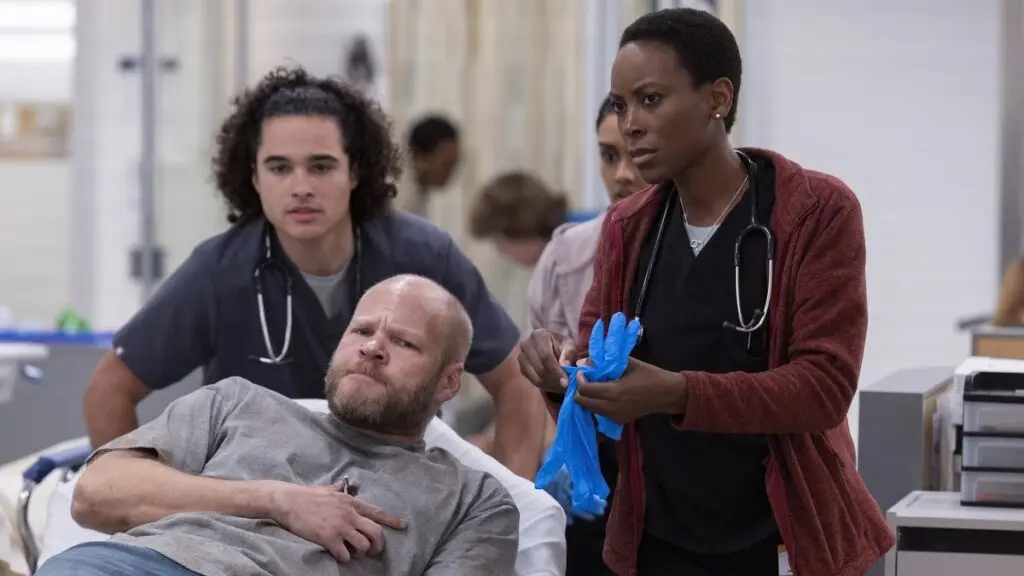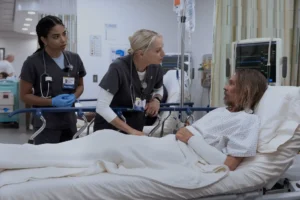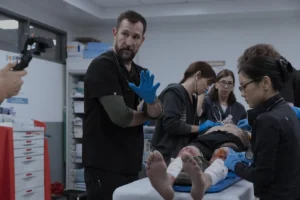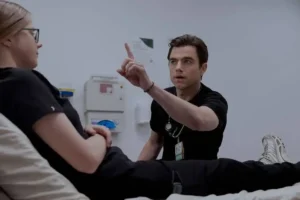Summary
The Pitt grapples with death in all its forms in Episode 3, another extremely poignant and powerful hour.
The word of the day is “death”. This is largely true of any episode of any medical drama, but it’s particularly true of Episode 3 of The Pitt, which opens and closes with death, and spends all its intervening time – this is 9am-10am, if you’re wondering – contemplating the concept.
People die in a hospital, obviously. But The Pitt isn’t just about the trauma of losing patients but reckoning with the guilt of potentially being at fault, deciding at what point allowing someone to expire becomes merciful, and understanding the implications of what it means to truly lose someone; a relative, a patient, and even, on some level, yourself.
Episode 3 picks up where the two-part premiere left off, with Whitaker trying and failing to resuscitate Mr. Milton while his sympathetic colleagues give him enough time and cracked ribs to realize he has to let go. He spends the rest of the episode doing that, stewing in his guilt – despite Robby proving to him quite clearly that he wasn’t at fault – and suffering a couple of surprisingly comedic indignities just to add insult to injury. The point is that the death of a patient is only the beginning.
Despite Whitaker’s predicament kick-starting “9:00am” and providing that thematic throughline, he’s actually the least-involved character outside of the opening scene. Instead, The Pitt settles into a slightly more focused rhythm – although that stressful feeling of something always happening remains – and explores a handful of cases, some picking up from the premiere and some new, almost all of which deal with mortality in one way or another.
But it isn’t just about the patients. How the doctors react to them is especially important, and often wildly contrasting. Look at how deeply empathetic Mel is, but also how troubling she finds death, and how that clash exacerbates her little compulsive behaviors and ad hoc coping mechanisms (Mel’s obvious neurodivergency hasn’t been explicitly raised yet, but it can’t be far off.) But then look at how blasé Dr. Langdon is about it; his experience makes him a realist to such an extent that he has almost lost his sense of compassion. But Robby is experienced too, perhaps even more so, but also mandates a period of respectful silence when a patient is lost. Perhaps he has felt the chill of death a little more closely than Dr. Langdon has and respects it more for that reason.
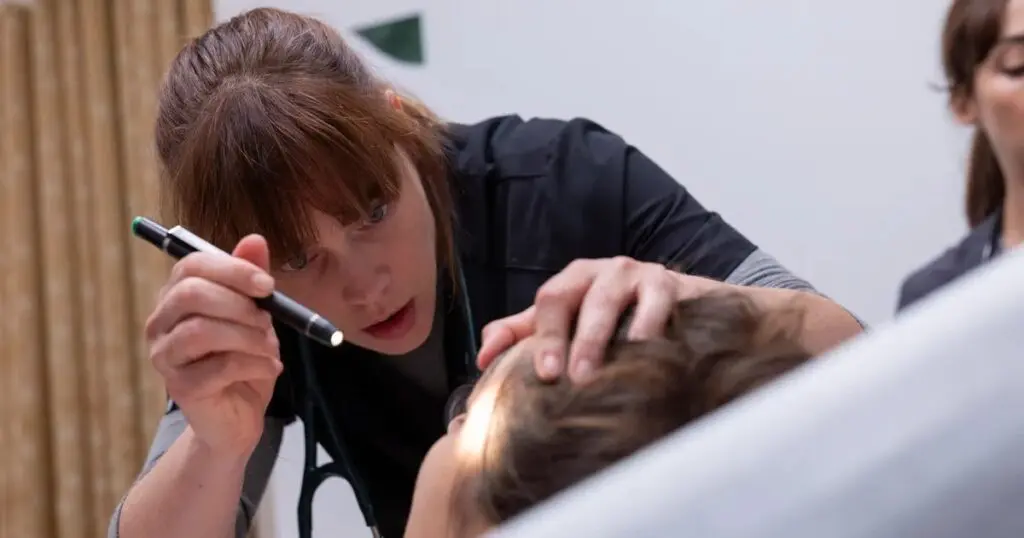
Fiona Dourif in The Pitt | Image via WarnerMedia
But it isn’t just a question of experience. Dr. Santos spends Episode 3 of The Pitt trying to use any suffering patient she can to practice certain procedures; anyone dead or dying in the building is just another rung on the ladder of her own career advancement. But her reflexive sarcasm also belies an insecurity, a fear of failure, of not being good enough and not standing out, that informs every decision she makes. It isn’t as complicated as her simply being unfeeling.
There are a few patients in particular who this episode really focuses on. One is the teenage boy from the premiere who accidentally overdosed on fentanyl, leading to brain death, which his parents won’t accept. In an intriguing wrinkle to this plot, a teenage girl is brought in having also ingested fentanyl through some laced Xanax, but she’s revived on a gurney and will by all accounts be fine. The young boy and the young girl are peers; they took the same drugs. One survived, one didn’t, with seemingly no logic behind which was which. It’s the cruel randomness of this that sends the boy’s father into a tailspin. It’s only after raging at the girl in an effort to direct blame at someone that he finally realizes his son is gone.
Another focus is the old man from the premiere whose children elected to override his do-not-resuscitate order to intubate him against his will, which backfires terribly. He becomes increasingly uncomfortable, and every possible procedure to extend his life will only cause him more suffering. Robby tells them gently that the kindest thing to do would be to let him go, and that on some level it’s likely he knows this and is willing it himself. They eventually agree to but in their hubris, they’ve given themselves something else to live with – causing their father unnecessary suffering in his final moments, all because of the fear of losing him in the first place.
It took me a moment to realize that the closing moments of The Pitt Episode 3 are a callback to the very first moments of Episode 1, when Robby’s colleague Dr. Abbot debated throwing himself from the hospital’s roof. His patient was a veteran who lost his life, which is what pushed him so close to the edge, and his sister, who arrives to claim the body, reads a letter from Dr. Abbot containing his reassuring, understanding words of condolence.
It’s an oddly quiet moment for this show, which remains in an equally quiet way a rather sophisticatedly brilliant drama.

